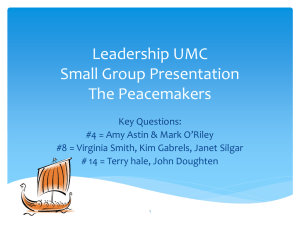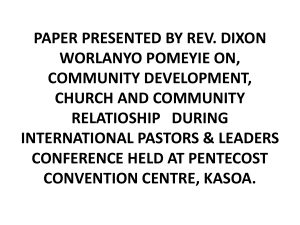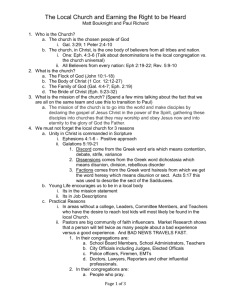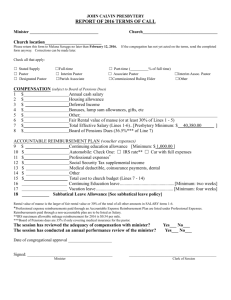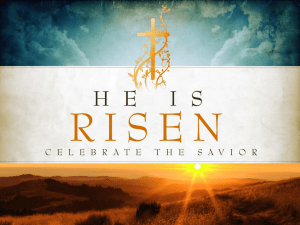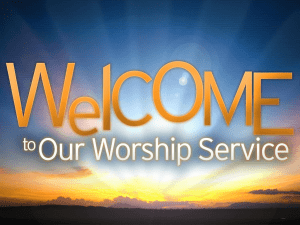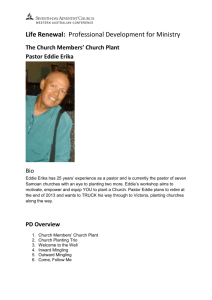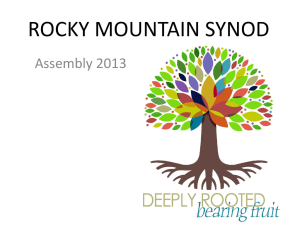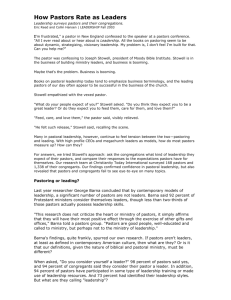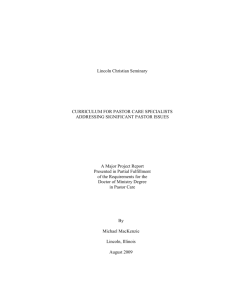Visiting Pastor
advertisement
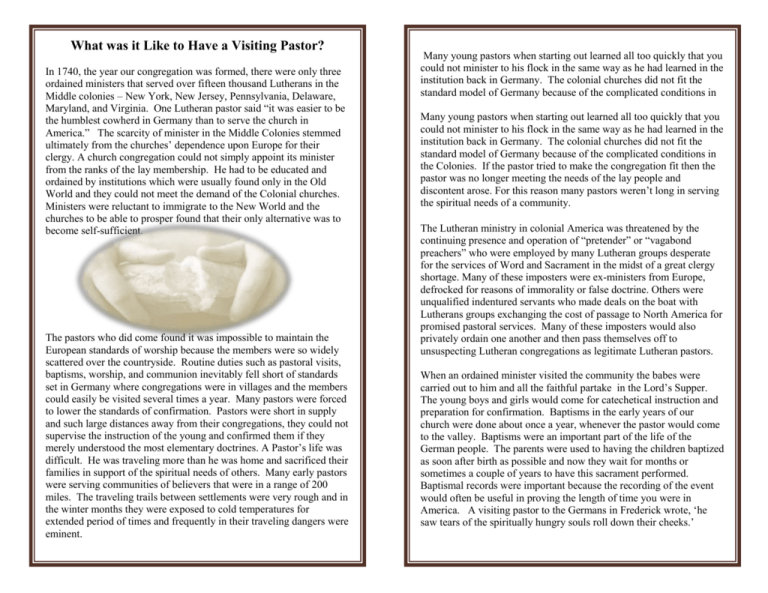
What was it Like to Have a Visiting Pastor? In 1740, the year our congregation was formed, there were only three ordained ministers that served over fifteen thousand Lutherans in the Middle colonies – New York, New Jersey, Pennsylvania, Delaware, Maryland, and Virginia. One Lutheran pastor said “it was easier to be the humblest cowherd in Germany than to serve the church in America.” The scarcity of minister in the Middle Colonies stemmed ultimately from the churches’ dependence upon Europe for their clergy. A church congregation could not simply appoint its minister from the ranks of the lay membership. He had to be educated and ordained by institutions which were usually found only in the Old World and they could not meet the demand of the Colonial churches. Ministers were reluctant to immigrate to the New World and the churches to be able to prosper found that their only alternative was to become self-sufficient. The pastors who did come found it was impossible to maintain the European standards of worship because the members were so widely scattered over the countryside. Routine duties such as pastoral visits, baptisms, worship, and communion inevitably fell short of standards set in Germany where congregations were in villages and the members could easily be visited several times a year. Many pastors were forced to lower the standards of confirmation. Pastors were short in supply and such large distances away from their congregations, they could not supervise the instruction of the young and confirmed them if they merely understood the most elementary doctrines. A Pastor’s life was difficult. He was traveling more than he was home and sacrificed their families in support of the spiritual needs of others. Many early pastors were serving communities of believers that were in a range of 200 miles. The traveling trails between settlements were very rough and in the winter months they were exposed to cold temperatures for extended period of times and frequently in their traveling dangers were eminent. Many young pastors when starting out learned all too quickly that you could not minister to his flock in the same way as he had learned in the institution back in Germany. The colonial churches did not fit the standard model of Germany because of the complicated conditions in Many young pastors when starting out learned all too quickly that you could not minister to his flock in the same way as he had learned in the institution back in Germany. The colonial churches did not fit the standard model of Germany because of the complicated conditions in the Colonies. If the pastor tried to make the congregation fit then the pastor was no longer meeting the needs of the lay people and discontent arose. For this reason many pastors weren’t long in serving the spiritual needs of a community. The Lutheran ministry in colonial America was threatened by the continuing presence and operation of “pretender” or “vagabond preachers” who were employed by many Lutheran groups desperate for the services of Word and Sacrament in the midst of a great clergy shortage. Many of these imposters were ex-ministers from Europe, defrocked for reasons of immorality or false doctrine. Others were unqualified indentured servants who made deals on the boat with Lutherans groups exchanging the cost of passage to North America for promised pastoral services. Many of these imposters would also privately ordain one another and then pass themselves off to unsuspecting Lutheran congregations as legitimate Lutheran pastors. When an ordained minister visited the community the babes were carried out to him and all the faithful partake in the Lord’s Supper. The young boys and girls would come for catechetical instruction and preparation for confirmation. Baptisms in the early years of our church were done about once a year, whenever the pastor would come to the valley. Baptisms were an important part of the life of the German people. The parents were used to having the children baptized as soon after birth as possible and now they wait for months or sometimes a couple of years to have this sacrament performed. Baptismal records were important because the recording of the event would often be useful in proving the length of time you were in America. A visiting pastor to the Germans in Frederick wrote, ‘he saw tears of the spiritually hungry souls roll down their cheeks.’ Many young pastors when starting out learned all too quickly that you could not minister to his flock in the same way as he had learned in the institution back in Germany. The colonial churches did not fit the standard model of Germany because of the complicated conditions in Many young pastors when starting out learned all too quickly that you could not minister to his flock in the same way as he had learned in the institution back in Germany. The colonial churches did not fit the standard model of Germany because of the complicated conditions in the Colonies. If the pastor tried to make the congregation fit then the pastor was no longer meeting the needs of the lay people and discontent arose. For this reason many pastors weren’t long in serving the spiritual needs of a community. The Lutheran ministry in colonial America was threatened by the continuing presence and operation of “pretender” or “vagabond preachers” who were employed by many Lutheran groups desperate for the services of Word and Sacrament in the midst of a great clergy shortage. Many of these imposters were ex-ministers from Europe, defrocked for reasons of immorality or false doctrine. Others were unqualified indentured servants who made deals on the boat with Lutherans groups exchanging the cost of passage to North America for promised pastoral services. Many of these imposters would also privately ordain one another and then pass themselves off to unsuspecting Lutheran congregations as legitimate Lutheran pastors. When an ordained minister visited the community the babes were carried out to him and all the faithful partake in the Lord’s Supper. The young boys and girls would come for catechetical instruction and preparation for confirmation. Baptisms in the early years of our church were done about once a year, whenever the pastor would come to the valley. Baptisms were an important part of the life of the German people. The parents were used to having the children baptized as soon after birth as possible and now they wait for months or sometimes a couple of years to have this sacrament performed. Baptismal records were important because the recording of the event would often be useful in proving the length of time you were in America. A visiting pastor to the Germans in Frederick wrote, ‘he saw tears of the spiritually hungry souls roll down their cheeks.’
